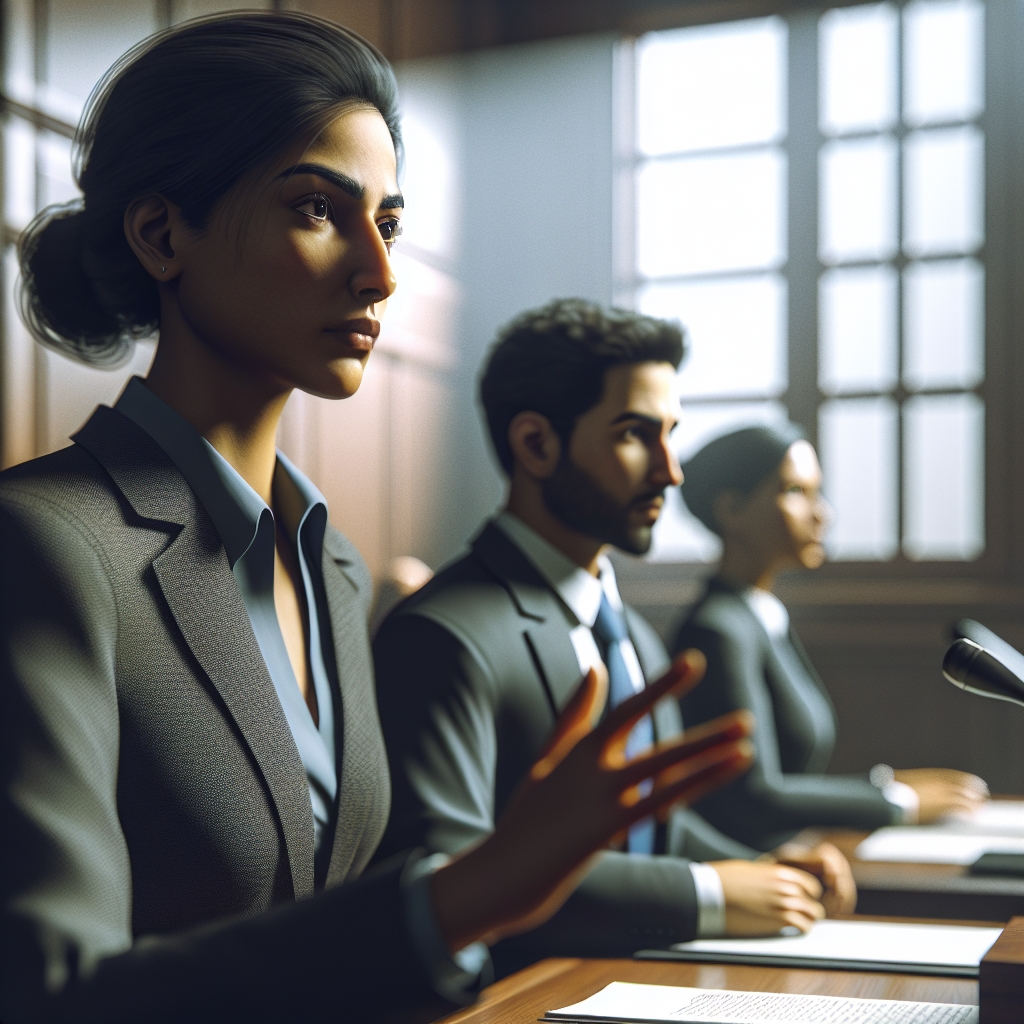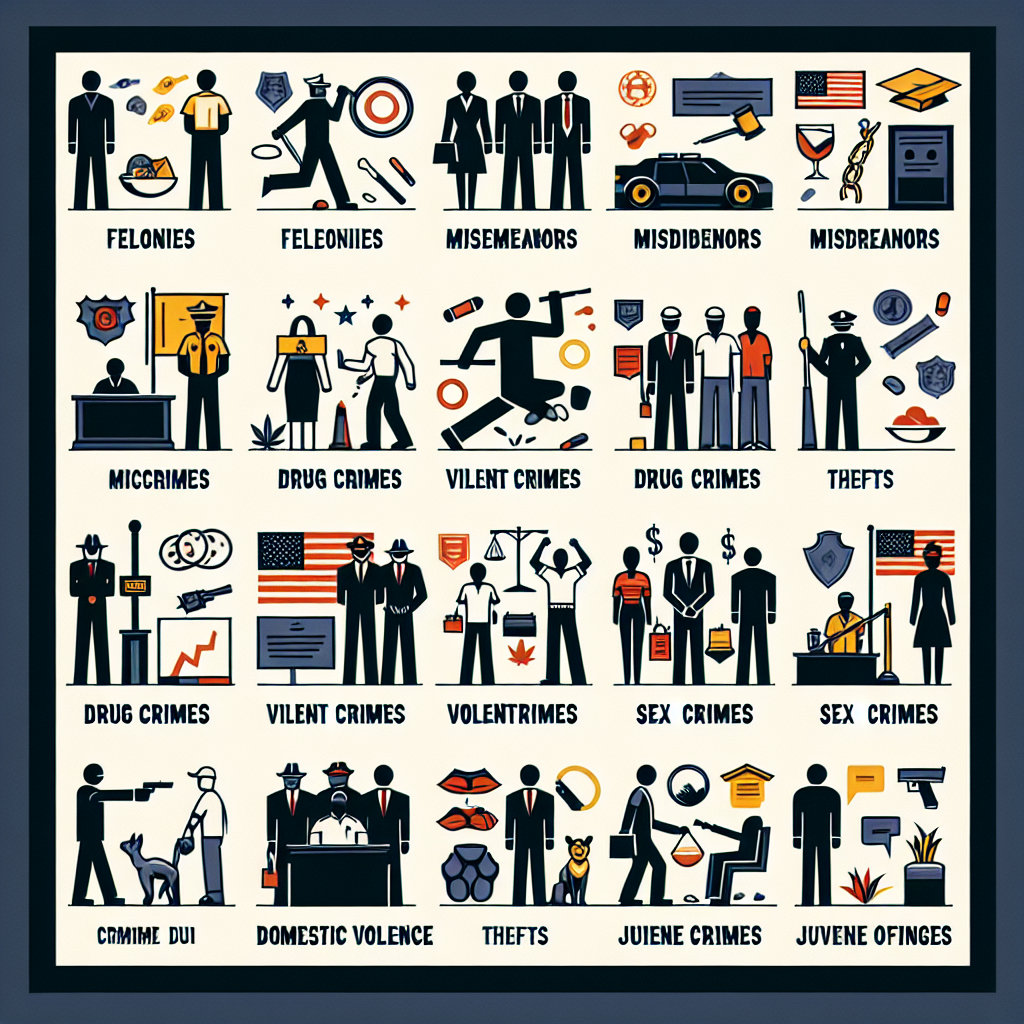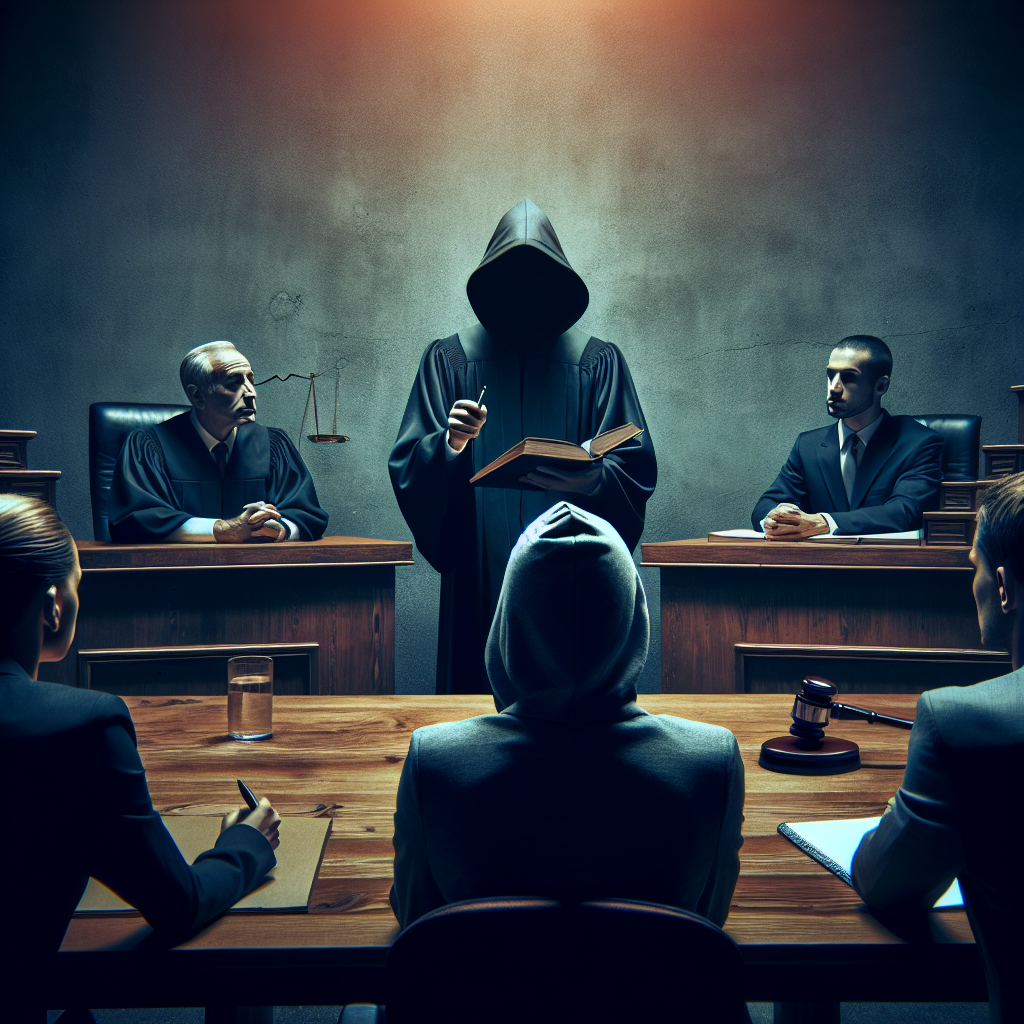Navigating Criminal Defense: What to Expect When Facing Charges
Introduction
So, you’ve found yourself in the deep end of the legal pool, and it’s not exactly a refreshing dip. Facing criminal charges can feel like being trapped in a courtroom drama where you didn’t even want to audition. But fear not! Understanding the ins and outs of criminal defense can turn that overwhelming script into a manageable playbook.
First things first, let’s clear the air: a charge does not equal guilt. In fact, navigating the criminal justice system is more about strategy than it is about standing in front of a judge with your head hung low. Enter your trusty sidekick the criminal defense attorney. This legal wizard will help you craft a defense strategy tailored to your unique situation. Think of them as your personal coach in this high-stakes game.
In this guide, we’ll break down what to expect when facing charges from understanding the role of a defense lawyer to navigating the twists and turns of your criminal case. Whether you’re dealing with minor misdemeanors or more serious felonies, having solid legal representation is crucial. After all, knowledge is power and in the world of criminal law, it could be your ticket to freedom.
Key Takeaway: Facing criminal charges? Don’t go it alone! A skilled criminal defense lawyer can make all the difference in building an effective defense strategy.

Understanding Criminal Defense
Criminal defense is like the superhero of the legal world, swooping in to protect your rights when you’re facing criminal charges. Whether it’s a minor misdemeanor or a serious felony, having a solid understanding of criminal defense can make all the difference in your case.
Definition of Criminal Defense
At its core, criminal defense refers to the legal strategies and arguments used to defend someone accused of a crime. It’s all about ensuring that the accused receives fair treatment under the law and that their legal rights are upheld throughout the process. Think of it as your shield against the sometimes overwhelming forces of the criminal justice system.
The Role of a Criminal Defense Attorney
A criminal defense attorney is your trusted ally in this battle. Their primary role is to provide legal representation, guide you through complex procedures, and craft a defense strategy tailored specifically for your situation. Here are some key responsibilities:
- Consultation: They’ll discuss your case details and outline potential defenses.
- Investigation: Gathering evidence, interviewing witnesses, and analyzing police reports to build your case.
- Representation: Acting on your behalf during negotiations, hearings, and trials.
- Advice: Offering insights on plea bargains and potential outcomes based on their expertise.
Overview of the Criminal Law System
The criminal law system can feel like an intricate maze filled with legal jargon and procedures that often leave defendants scratching their heads. Here’s a brief overview:
- Law Enforcement: The journey begins here when law enforcement investigates crimes and makes arrests.
- Court Proceedings: After charges are filed, cases move through various stages including arraignment, pre-trial motions, and potentially trial.
- Plea Bargains: Many cases end in plea deals where defendants agree to plead guilty for reduced sentences or charges.
- Sentencing: If found guilty or if a plea deal is accepted, sentencing guidelines dictate what penalties will be imposed.
The stakes are high in criminal cases missteps can lead to severe consequences like hefty fines or prison time. That’s why understanding your rights and options is crucial!
Navigating this system without proper legal counsel can be like trying to navigate a minefield blindfolded dangerous and potentially disastrous. So whether you’re facing charges related to theft, assault, or DUI offenses, having an experienced criminal defense lawyer by your side can make all the difference between freedom and conviction.
Types of Criminal Charges
When it comes to criminal defense, understanding the types of criminal charges is crucial. Think of it as picking your favorite ice cream flavor each one has its unique ingredients and consequences. Here’s a breakdown:
- Felony vs. Misdemeanor Charges: Felonies are the big leagues think serious offenses like robbery or murder, often leading to hefty prison time. Misdemeanors, on the other hand, are more like minor traffic violations or petty thefts; they usually come with lighter sentences, such as fines or short jail time.
- DUI and Drug Crimes: Driving under the influence (DUI) is a serious charge that can lead to severe penalties, including license suspension and mandatory classes. Drug crimes range from possession to trafficking, and the legal landscape is constantly changing especially with new laws around marijuana.
- Violent Crimes and White Collar Crimes: Violent crimes include offenses like assault or homicide, which can involve significant prison time and social stigma. White collar crimes like fraud or embezzlement are non-violent but can still carry hefty penalties and long-lasting repercussions on your career.
- Theft and Domestic Violence Cases: Theft charges can vary widely from shoplifting to grand larceny, affecting your future job prospects. Domestic violence cases often involve complex emotional dynamics and legal strategies; having a skilled defense attorney is essential in these sensitive situations.
- Sex Crimes and Juvenile Offenses: Sex crimes are taken very seriously in criminal law; even accusations can lead to significant social consequences. Juvenile offenses are handled differently than adult cases, focusing more on rehabilitation than punishment.
Quick Tip: Always consult with a criminal defense lawyer if you’re facing any charges! They can help navigate the complexities of your specific situation.

The Arrest Process and Initial Steps
So, you’ve found yourself in a bit of a pickle with the law. First things first: breathe. The arrest process can feel like a whirlwind, but understanding what happens next will help you keep your cool. Here’s the lowdown on what to expect when those handcuffs come out.
Your Rights During an Arrest (Miranda Rights)
When the police arrest you, they are required to inform you of your Miranda rights. This means you have the right to remain silent and the right to an attorney. It’s not just legal jargon; it’s your ticket to protecting yourself during this stressful time. Remember:
- Stay Silent: Anything you say can and will be used against you in court.
- Request Legal Counsel: Politely ask for a criminal defense attorney before answering any questions.
Bail and Bondsman Services Explained
If you’re arrested, you might find yourself needing bail a way to secure your release while awaiting trial. Here’s how it works:
- Bail Amount: Depending on the charges, bail can vary widely. For minor misdemeanors, it might be a few hundred bucks; for felonies, it could skyrocket into the thousands.
- Bondsman Services: If you’re short on cash, a bondsman can help by posting bail for a fee (usually around 10% of the bail amount). Just remember: if you skip out on court dates, they will come looking for you!
Key Takeaway: Engaging a criminal defense lawyer early in the process can significantly impact your case’s outcome. They will ensure that your legal rights are upheld and help navigate through bail options effectively.
The Importance of Legal Representation from the Start
This is not just about having someone who can argue well in front of a judge; it’s about having someone who knows the ins and outs of criminal law. A skilled criminal defense attorney can:
- Advise You on Your Rights: They’ll ensure that law enforcement respects your Miranda rights.
- Create Your Defense Strategy Early: Whether it’s negotiating bail or preparing for pre-trial motions, having legal counsel from day one is crucial.
- Nail Down Evidence Gathering: Your attorney will start working on gathering evidence that could support your case right away.
The road ahead might look daunting, but remember: knowledge is power! Understanding these initial steps will set you up for success as you navigate through this complicated landscape of criminal justice.
Building Your Defense Strategy
So, you’ve found yourself in a bit of a pickle, huh? Facing criminal charges can feel like being trapped in a game of chess where the pieces are all out to get you. But fear not! Building a solid defense strategy is your best move. Here’s how to navigate this tricky terrain with flair.
- Consulting with a criminal defense lawyer: First things first, you’ll want to find a criminal defense attorney who knows their stuff. Think of them as your personal legal superhero, ready to swoop in and save the day. They’ll help you understand the nuances of your case and what strategies might work best.
- Gathering evidence and witness statements: You wouldn’t go into battle without your sword, right? Similarly, gathering evidence is crucial for your defense strategy. This includes collecting witness statements and any other documentation that supports your case. A well-prepared defense can turn the tide in court.
- Understanding legal defenses: Not all defenses are created equal. Familiarize yourself with potential legal defenses that could apply to your situation. For instance, if you’re facing assault charges, exploring self-defense claims might be an option worth considering. Knowing these can give you an edge in negotiations or during trial.
Key Takeaway: A solid defense strategy is built on collaboration with your attorney, thorough evidence collection, and a clear understanding of applicable legal defenses. Don’t underestimate the power of preparation!
As you build this strategy, remember that every criminal case is unique what works for one person may not work for another. Stay engaged with your attorney throughout the process; after all, they’re your guide through the labyrinth of criminal law!

Navigating the Criminal Court Process
Once the gavel comes down and your criminal case enters the courtroom, it’s time to buckle up. The criminal court process can feel like a rollercoaster ride, complete with twists, turns, and that gut-wrenching drop when you realize just how much is at stake. But fear not! With a skilled criminal defense attorney by your side, you can navigate these turbulent waters with confidence.
The Role of the Defense Attorney in Court Proceedings
Your defense lawyer is your legal superhero think of them as your personal Gandalf guiding you through the treacherous lands of criminal law. They’re responsible for:
- Presenting your case in the best light possible.
- Cross-examining witnesses to poke holes in the prosecution’s narrative.
- Utilizing their knowledge of legal procedures to challenge evidence and keep your rights intact.
Plea Bargain Negotiations and Their Implications
Plea bargains are like those “buy one get one free” offers at your favorite store tempting but not always what they seem. In many cases, a plea bargain might be offered by the prosecution to resolve your case without going to trial. Here’s what you need to know:
- Pros: Often results in lesser charges or reduced sentences.
- Cons: You may have to plead guilty to something, which could affect future opportunities (like that job you’ve been eyeing).
Key Takeaway: Always discuss any plea bargain offers with your defense attorney before making a decision. They can help ensure that you’re not giving up more than you’re gaining!
Pre-Trial Motions in Criminal Cases Explained
Your defense attorney will also file pre-trial motions these are like warm-up exercises before the big game. They can include requests to suppress evidence (because who wants evidence that was obtained illegally?) or motions for discovery (getting access to all evidence the prosecution has). These motions are crucial for building a solid defense strategy!
The Trial Phase: What to Expect
Welcome to the main event! When it comes to your criminal defense, the trial phase is where the rubber meets the road. This is the moment when all your preparation and strategy come into play, and it’s essential to know what’s on the docket.
The Jury Selection Process in Trials
The jury selection process, also known as voir dire, is where potential jurors are questioned by both the prosecution and your defense attorney. Think of it as a first date everyone’s trying to find out if they’re a good match. The goal here is to assemble an impartial jury that will hear your case fairly.
- Importance of Bias: Both sides will look for any biases that could influence a juror’s decision. This is crucial because a biased juror could jeopardize your case.
- Strikes: Each side has a limited number of peremptory strikes, which allows them to dismiss certain jurors without stating a reason. Use them wisely!
Cross-Examination Techniques for Attorneys
Once the trial kicks off, you’ll see your defense lawyer go head-to-head with witnesses during cross-examination. This is where things can get spicy! Your attorney will aim to poke holes in the prosecution’s case, using techniques like:
- Leading Questions: These are designed to elicit specific answers that favor your defense.
- Discrediting Witnesses: If a witness has inconsistencies in their testimony or questionable motives, your attorney will spotlight those flaws.
- Establishing Doubt: The goal is not necessarily to prove innocence but rather to create reasonable doubt in the minds of jurors.
The Role of Expert Witnesses in Trials
Your defense strategy may also involve expert witnesses who can provide specialized knowledge relevant to your case. Whether it’s a forensic scientist explaining evidence or a psychologist discussing mental state, these experts can be game-changers!
- Credibility Matters: The more credible and relatable an expert appears, the more persuasive their testimony will be.
- Costs Involved: Remember that hiring expert witnesses can be pricey, but they might be worth every penny if they strengthen your defense.

Takeaway: The trial phase can be daunting but understanding what to expect from jury selection through expert testimonies can empower you as you navigate this process. Always keep communication open with your criminal defense attorney; they’re there to guide you through this legal labyrinth!
Sentencing and Post-Trial Considerations
So, you’ve navigated the tumultuous waters of a criminal trial, and now you’re staring down the barrel of sentencing. It can feel like being in a game of poker where the stakes just got ridiculously high. But don’t fret! Understanding what comes next can help you play your cards right.
- Sentencing guidelines in criminal law cases: These are the rules that guide judges in determining appropriate sentences for various offenses. They consider factors such as the severity of the crime, prior criminal history, and any mitigating circumstances. Think of it as a recipe: too much of one ingredient can spoil the dish.
- Probation violation attorney services: If you’ve been sentenced to probation and find yourself in hot water for violating its terms, a skilled defense attorney can be your lifeline. They’ll navigate the complex legal waters to help you avoid harsher penalties like a lifeguard at a chaotic beach party!
- Appeals process for convicted individuals: If you believe that your trial was unfair or that errors were made, you might have grounds for an appeal. This is like asking for a second opinion at the doctor’s office except here, you’re hoping to overturn your conviction instead of just getting better advice on your health.
- Post-conviction relief options available to defendants: Sometimes, even after conviction, there are avenues to explore like seeking an expungement of criminal records or requesting a sentence reduction. These options can provide hope and pathways to moving forward with life after legal troubles.
Remember: Every case is unique! Consulting with a qualified criminal defense lawyer can provide tailored strategies based on your specific situation.
The world of sentencing and post-trial considerations is intricate but manageable with the right legal representation. Whether you’re dealing with probation issues or considering an appeal, having knowledgeable legal counsel by your side can make all the difference. Just think: navigating this phase is like finding your way through a maze sometimes it takes an experienced guide to lead you out safely!
Mistakes to Avoid When Facing Criminal Charges
When you find yourself in the murky waters of criminal charges, it’s easy to make mistakes that can sink your case faster than a lead balloon. Here are some common pitfalls to steer clear of:
- Misinformation about legal rights in criminal cases: Many people think they know their rights, but misconceptions abound. For instance, believing you can talk your way out of anything without a criminal defense attorney by your side is a classic blunder. Understanding your constitutional rights for defendants, especially regarding Miranda rights and their implications, is crucial.
- Pitfalls in self-representation: Sure, you might think you can channel your inner legal eagle and represent yourself. However, unless you’ve got a law degree and years of experience under your belt, this is like trying to perform heart surgery with a butter knife. The complexities of criminal law require expert navigation enter the criminal defense lawyer. They know the ins and outs of the system, from crafting a solid defense strategy to negotiating plea bargains.
- Ignoring the importance of evidence: Some folks believe that if they just tell their side of the story, it will be enough. Spoiler alert: it won’t! Evidence is king in criminal court. Whether it’s witness statements or physical evidence, having a strong case means gathering all necessary documentation and understanding how to present it effectively.
- Underestimating plea bargain negotiations: Plea deals can be lifesavers or landmines depending on how they’re handled. Rushing into a deal without fully understanding its implications can lead to severe consequences down the line like a one-way ticket to a lengthy prison sentence instead of probation or lesser charges.
- Neglecting post-trial options: After a conviction, many defendants throw in the towel, thinking it’s game over. But wait! There are options like appeals and post-conviction relief that could change the outcome of your situation. Don’t forget about seeking help from specialized attorneys like a probation violation attorney or exploring expungement options for those pesky records.
Key Takeaway: Avoiding these mistakes requires vigilance and knowledge. Always consult with an experienced defense attorney who can guide you through the complexities of your specific situation.
Conclusion
Facing criminal charges can feel like being thrown into the deep end of a pool without a life jacket. But with the right criminal defense strategy and a skilled criminal defense attorney by your side, you can navigate these murky waters with confidence. Remember, legal representation is not just a luxury; it’s a necessity when your freedom is at stake.
Your journey through the criminal justice system from understanding your rights during an arrest to the complexities of trial and sentencing requires careful attention to detail and expert guidance. Whether you’re dealing with a minor misdemeanor or a serious felony, having a knowledgeable defense lawyer can make all the difference in how your case unfolds.
Key Takeaway: Always consult with a qualified criminal defense lawyer early in your case to ensure that your legal rights are protected and that you have the best chance at a favorable outcome.
As you prepare for what lies ahead, keep in mind that the legal landscape is ever-evolving. New trends, like digital evidence collection and changes in sentencing guidelines, are shaping how cases are prosecuted and defended. Stay informed about these developments, as they could impact your case significantly.
If you find yourself facing charges, don’t hesitate to reach out for help. Whether you need assistance with bail and bondsman services or guidance through plea bargain negotiations, there are resources available to support you. Remember: navigating criminal defense doesn’t have to be done alone!
